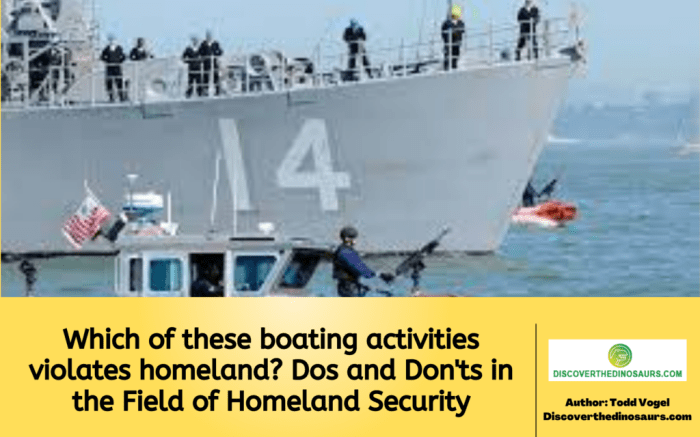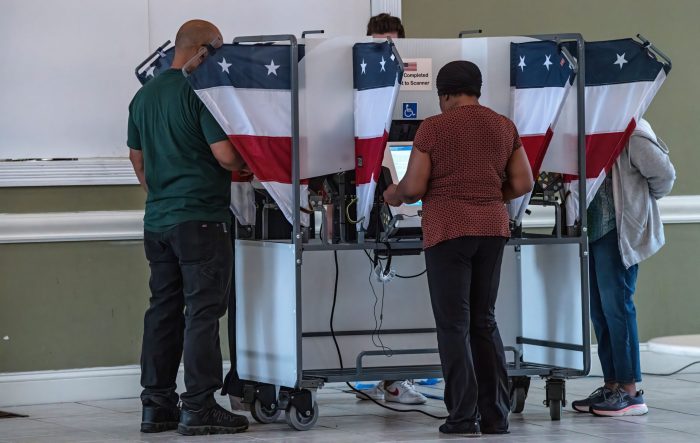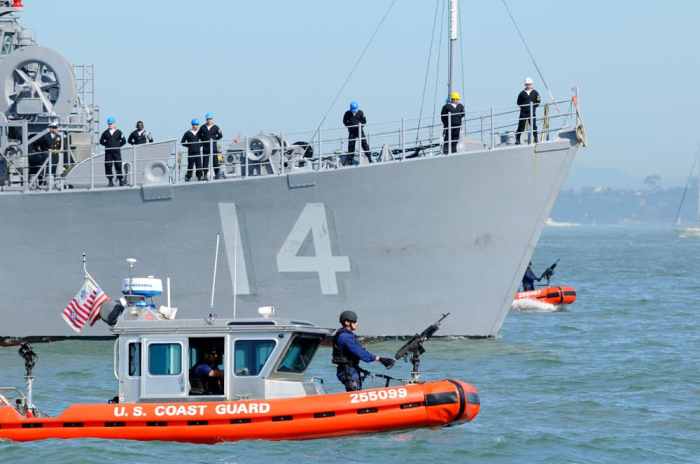Which of these boating activities violate homeland security restrictions – Navigating the waters of homeland security restrictions can be a complex task, particularly for recreational boaters. To ensure the safety and security of our waterways, it is crucial to understand which boating activities violate these regulations. This comprehensive guide delves into the restricted boating activities, regulations, and potential consequences, empowering boaters to navigate responsibly and avoid unintentional violations.
Homeland Security restrictions are in place to protect critical infrastructure, military zones, and other sensitive areas from potential threats. Boating activities that violate these restrictions can range from entering designated restricted zones to engaging in activities that pose a safety or security risk.
Which of these Boating Activities Violate Homeland Security Restrictions?

Boating activities in the United States are subject to regulations and restrictions imposed by the Department of Homeland Security (DHS) to ensure the safety and security of the nation’s waterways.
Restricted Boating Activities:
Under Homeland Security restrictions, certain boating activities are prohibited or restricted in designated areas to protect critical infrastructure, military installations, and other sensitive locations.
- Entering or navigating within military zones or restricted areas without authorization.
- Approaching or anchoring near critical infrastructure, such as bridges, dams, power plants, or oil refineries.
- Operating vessels in a manner that interferes with law enforcement or security operations.
- Engaging in activities that pose a potential security threat, such as surveillance or unauthorized photography.
Regulations and Enforcement:
The legal framework governing boating activities in restricted areas includes the Maritime Transportation Security Act (MTSA) and the 33 CFR Part 105 regulations.
Law enforcement agencies, including the Coast Guard, Customs and Border Protection (CBP), and local police departments, are responsible for enforcing security measures and responding to violations.
Penalties for violating Homeland Security restrictions can include fines, vessel seizure, and criminal charges.
Safety and Security Concerns:
Boating in restricted areas can pose significant safety and security risks, including:
- Collision with military vessels or other restricted craft.
- Interference with critical infrastructure operations.
- Potential for terrorist or criminal activity.
Adhering to security protocols and avoiding restricted areas is essential for the safety of boaters and the protection of the nation.
Exemptions and Exceptions:, Which of these boating activities violate homeland security restrictions
In certain cases, exemptions or exceptions to Homeland Security restrictions may be granted for:
- Authorized personnel or vessels engaged in official duties.
- Vessels with valid clearances or permissions from appropriate authorities.
- Boaters who have obtained a security clearance and are authorized to operate in restricted areas.
Reporting Suspicious Activities:
Boaters are encouraged to report any suspicious activities or potential violations to the Coast Guard or local law enforcement.
Suspicious activities may include:
- Vessels operating in restricted areas without authorization.
- Unusual or suspicious behavior by boaters.
- Unidentified objects or vessels in the water.
Reporting suspicious activities helps maintain maritime security and prevents potential threats.
Query Resolution
What are the common boating activities that violate homeland security restrictions?
Entering restricted zones, approaching critical infrastructure, and engaging in activities that pose a safety or security risk are common violations.
What are the penalties for violating homeland security boating restrictions?
Penalties can range from fines to imprisonment, depending on the severity of the violation.
How can I report suspicious boating activities?
Contact the U.S. Coast Guard or local law enforcement agencies to report suspicious activities.


